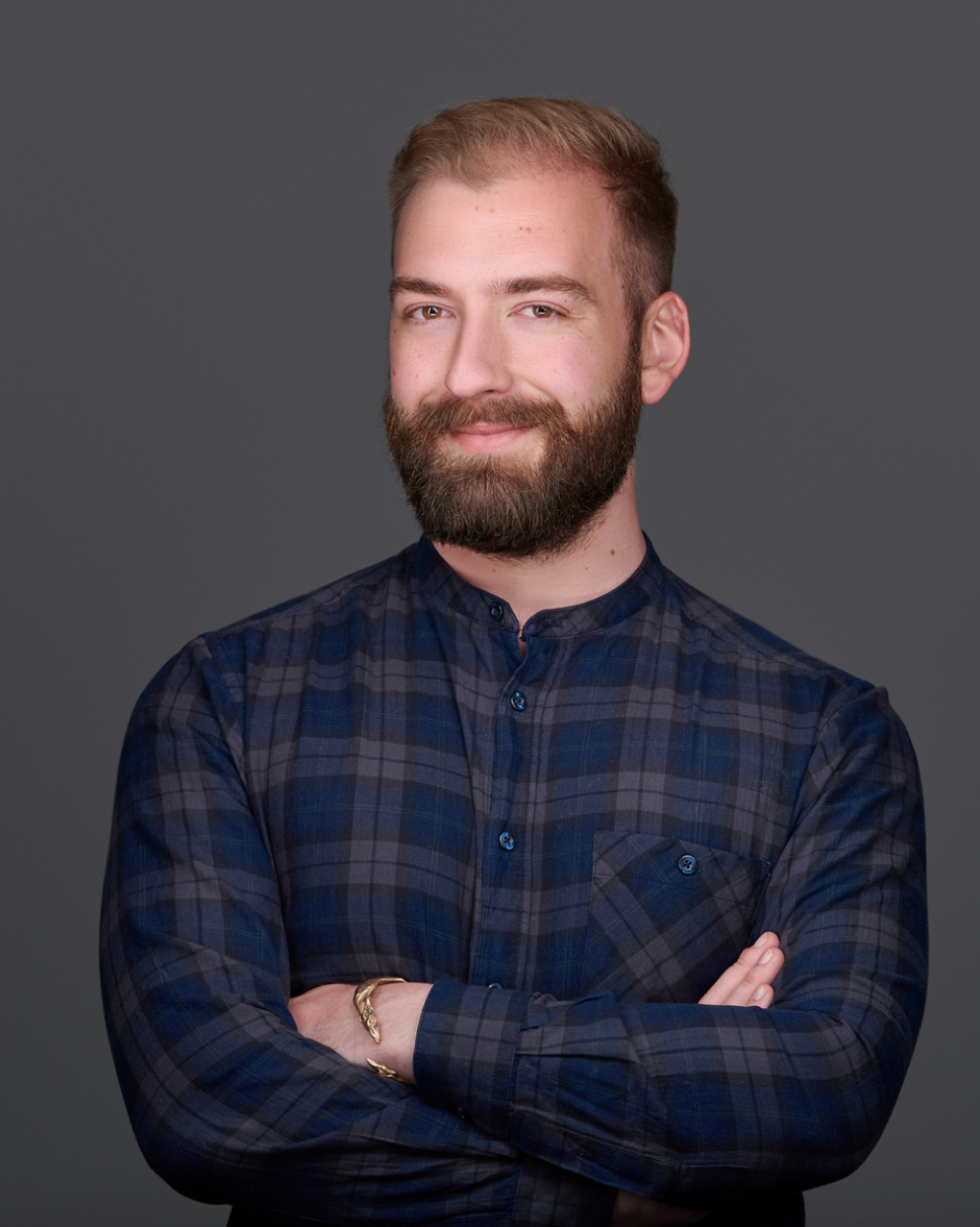In this first of a series of interviews with marketing leaders from across B2B, Neighbourly Marketing Lead Sam Wolf shares his unique perspective of the industry.
It was music that led Sam Wolf into marketing, but there’s nothing one-note about where his career has taken him or how the marketing industry has moved on in the 13 years since.
Today Sam is a marketing lead at Neighbourly, “an award-winning giving platform that helps businesses make a positive impact in their communities by donating volunteer time, money and surplus products”. With the UK facing a cost-of-living crisis, the role Neighbourly plays in helping businesses to support the groups that are looking after the most vulnerable and communities across the country couldn’t be more vital.
This kind of marketing requires detailed customer insights, a deep channel knowledge, and self-awareness when it comes to messaging. I sat down with Sam to talk about how he achieves this and what other marketers can learn from his experiences.
Thomas Brown: How did you find your way into marketing?
Sam Wolf: It was almost accidentally if I'm honest. At university I got heavily involved with running music events, a big part of which was promotion. Flyers, event listings, even a bit of early social media marketing. Then through contacts I made after I graduated I was offered the opportunity to join an agency booking house DJs and live acts for festivals and clubs all over the world. This was around 2008 and the reality then was that digital wasn’t being utilised anywhere near as heavily as it is today. But we had a social media presence. We had a website and we sent out newsletters. As the team assistant at the time, it fell to me to maintain these channels, among a very diverse set of responsibilities.
I really enjoyed it, especially sharing new content, mixes, interviews etc. and seeing the engagement. And although the analytics were very simple — tracking Facebook likes and monitoring email opens — I watched them, and I learned the basics, and I started to get better at it. Three years later, when I decided to transition into a role that was less 24/7, I went all in with a master’s degree in marketing management and my career went from there.
What was it like doing marketing in the music industry?
As an industry, it had its pros and cons. I worked with a lot of high-profile content so people naturally wanted to engage with it. We had higher engagement rates than I've seen in almost anything ever since. And the content was interesting. But there were often challenges around getting approval. You’d have people refusing to sign off content or other deliverables at the last minute. And it wasn’t just written content. Artists were naturally very particular about things like photography, for example, while having a lower appreciation of the importance of growing an online profile than they do nowadays.Things have changed massively now, and social media numbers are a huge factor through which artists pick up more bookings and command higher fees.
How have you seen the industry change from those early days marketing in the music space to what you do now?
For one, I’m not sure the term “digital marketing” is relevant anymore. Obviously, budgets have shifted and the importance of certain channels, such as print, have decreased. But campaigns frequently integrate digital and offline elements, while digital billboards, programmatic TV advertising, and a whole plethora of other tactics span the gap.
In events, which is still one of the biggest drivers of new business across a lot of B2B industries, the physical experience is surrounded by digital marketing and analytics. From badge scans and QR codes on booths to virtual networking halls, almost every engagement is prepared for and captured, and followed up through digital channels.
The other shift has to be the rise of social media over the last decade. I’ve watched as social media has grown from a standing start to dominating ad spend by major brands. It’s almost unheard of now to launch a campaign without a clear social strategy in mind.
And that’s not just limited to B2C. In B2B it has enabled really precise marketing targeted to role profiles or industries or particular company lists. That just wasn't available when I started out, and it’s hugely powerful.
How about AI; do you have any thoughts on it and how it’s shaking up marketing?
I think for the next few years AI in general will be about productivity gain. It isn’t going to replace marketers for the foreseeable future. The reality is that the quality of the responses generated by tools like ChatGPT are such that they can’t be relied on autonomously to write a blog post from scratch for example. But there is a time-saving gain to be unlocked, from research to coming up with alternative subject lines for a headline to just building up understanding about how to approach a new subject.
Personally, I’m starting to use AI as a replacement for traditional search engines. You have to be aware of its limitations but I find being able to conversationally ask it a series of questions instead of flicking in and out of several dissatisfying search results much more intuitive and that can apply in a professional environment to B2B research too.
What else is important for businesses trying to reach audiences online?
It's about that value. Giving people content that’s genuinely going to make their lives easier and inform or educate them. In our space in particular, it's about not being heavy on sales-related messaging. We’re trying to be a force of good in the market so we have to be able to educate our audience on the benefits of our platform within their company and within the local community without straying into messaging that’s overly commercial. You have to have the right motivations and that has to come across in the marketing as well, whatever industry you’re in or whichever channel you’re using. That's really important to us.
How do you strike that balance between hitting your sales objectives while keeping your messaging non-salesy?
It’s about hitting that right message at the right time for where the buyer is in the funnel. So at the top, it's about brand appeal. Messaging to inform and educate on the value Neighbourly brings to both organisations themselves and their local community.
As you move further down the funnel you can start looking slightly more at the commercial imperative, the how, what, where and when.
Then when you get to the bottom of the funnel, that real decision-level piece, the reality is that our audience is asking more of those typical technology buyer questions — will this solution integrate with our wider strategy, is it good value for me, what can it do that your competitors can't? It's all about delivering the right message at the right point in the journey and being considerate that there's very different motivations in that buyer's cycle.
You mentioned stories earlier. How important are they to your marketing and where do you find them?
We’re constantly speaking to our clients and the good cause network to understand the impact of our programmes.Unlike many other industries I’ve worked in, we don’t have to try that hard to find inspiring stories. Good causes are thankful for the support of Neighbourly and our client partners, so they will very often tag us in a post about a successful volunteering day or when they receive a large donation or when a grant has enabled a new facility to be built.
Our clients are rightly proud about doing good things for the community and we support them in sharing their good work with wider audiences.
What else do you like about working in a role and an industry where you can make a real difference?
To be able to drive demand generation when the product is one that's going to deliver environmental and social benefits feels very rewarding.
From my start in music to now, I've been fairly fortunate in that I've always felt passionately about the areas in which I've worked. I've never marketed a product that I didn't care about or had moral reservations around. It’s so heartwarming to see the impact that your work has made and then when you're planning a campaign to bring on more businesses to support a new initiative, you genuinely feel motivated. It’s a different kind of motivation when you know you're going to deliver something that makes a real difference.
Heading
Separated they live in Bookmarksgrove right at the coast of the famous Semantics, large language ocean and many more stuff and more more more


Tom is BabelQuest's Principal Copywriter. He has a PhD in Creative Writing from the University of Southampton and is a novelist with Sparkling Books.


.png?width=50)

.png?width=50)
.png?width=50)


































